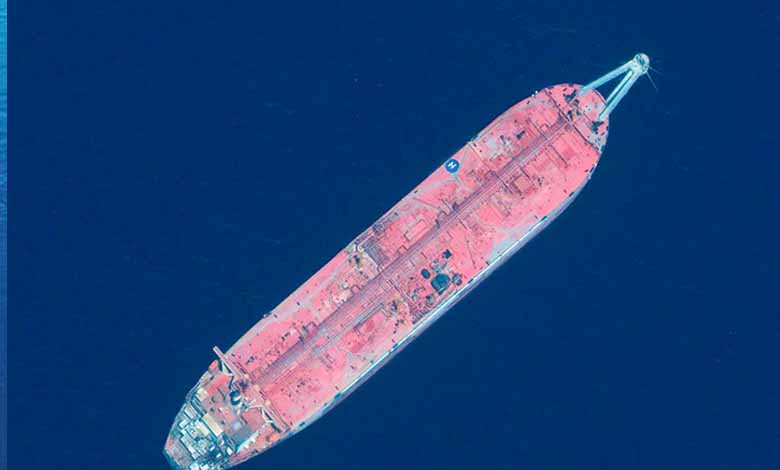Houthi intransigence raises risks of Safer explosion in Yemen – Details

Despite ongoing attempts to save the potentially explosive Yemeni tanker Safer, Houthi-imposed obstacles to the operation, once the UN completes all necessary arrangements, are still preventing it from proceeding – compounding the risk of an explosion from the rickety ship, which carries more than a million barrels of crude oil.
Major movement
The United States stressed the need for the immediate start of implementation of the emergency plan, which was drawn up by the United Nations and approved by the Yemeni government and the Houthis several months ago, to rescue the tanker Safer off the port of Ras Isa on Yemen’s western coast, especially since the wind season has ended.
Since March 2015, with the start of the war in Yemen and the Houthi militia seizing control of the tanker, the vessel’s structural condition has deteriorated drastically, leading to the risk of a catastrophic breach or explosion.
The ship is estimated to contain around 1.14 million barrels of oil worth up to US$80 million, which has become a sticking point in negotiations between the militia and the Yemeni government.
Houthi manipulation
Ahmed Jabbari, the Yemeni political analyst, says: The Houthi terrorist militia continues its manipulation and investment of the “Safer” floating oil tank, which contains about 1.14 million barrels of crude oil, pointing out that the international community is required to act quickly to avoid the risks of the erosion of the structure of the tanker and the increasing possibility of leakage, drowning, or a “Safer” explosion, and to stop the manipulation of Houthi militias, and to use it as a “time bomb”.
The Yemeni political analyst added: The militias ignored the warnings issued by think tanks and experts for eight years about the dangers of the oil leak, and its potential catastrophic effects on various levels regionally and internationally.
Major risk
The oil leak will threaten human health in Yemen and the countries bordering the Red Sea, pollute Red Sea desalination plants and cut off supplies to 10 million people. Yemen will also lose fisheries, which provide livelihoods for more than 1.7 million people, and it will destroy the region’s biodiversity and ideological systems.
A global environmental organization has blamed the United Nations for delaying the rescue of the potentially explosive Safer oil tanker off the coast of Yemen on the Red Sea.












